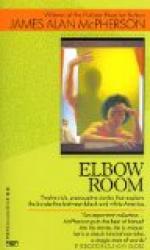But the man who is fortunate enough to dwell in the country during the ardent summer days takes a different and more kindly view of chanticleer. If he is waked early in the morning by the clarion voice of some neighboring cock, he will not repine, provided he went to bed at a reasonably early hour, for he will hear some music that is not wholly to be despised. The rooster in the neighboring barn-yard gives out the theme. His voice is a deep, but broken, bass. It is suggestive of his having roosted during the night in a draft, which has inflamed his vocal chords so that his tones have lost their sweetness. It is as if a coffee-mill had essayed to crow. The theme is taken up by a thin-voiced rooster a quarter of a mile away, and scarcely has he reached the concluding note before a baritone cock, a little more remote, repeats the cadence, only to have his song broken in upon by a nearer bird who understands exactly the part he is to play in the fugue. And so it passes on from the one to the other, growing fainter and fainter in the distance as Shanghai sings to Bantam and Chittagong to Brahmapootra, until, at last, there is silence; and then, “O hark! O hear! How thin and clear!” far, far away some rooster sends out a delicate falsetto note that might have come from a microscopic cock who is practicing ventriloquism in the cellar. Instantly the catarrhal chicken in the next yard begins the refrain again with his hoarse voice; and then again and again the fugue goes round, never tiring the listener, but always growing more musical, until the sun is fairly up, the hens awake and the scratching of the day is ready to begin.
The note of the cock has been misrepresented. Shakespeare, following usage, perhaps, has given it as “cock-a-doodle-doo,” and that is the accepted interpretation of it. But this does not convey the proper impression. We should say that if human syllables can tell the story they would assume some such form as:
Ooauk-auk-auk-au-au-au-auk!




